I’m feeling WICKED. I mean, really feeling it. I saw the Tony Award-winning musical again, at Boston’s Opera House, and again, found myself caught up and trembling at this smart, moving, goose-bump-inducing production of a brilliant show that deserves to be as “popular” as it is. What is it about this show? About me?
Yes, it’s a musical about two women. No man is going to come between these two witches– Glinda the Good Witch of the East and Elphaba the Wicked Witch of the West. They are as inextricable as black and white, light and dark, up and down–setting each other off, defining each other by contrast. One operates under cover of darkness, the other in the pure light of day. But this show’s deeper meaning is that neither is better or worse than the other– they are inextricably linked, interdependent, and this show peels back their superficial differences to reveal a deeper connection beneath. And so the show is really about surface and substance, truth and reality, good and evil, perception, friendship, identity, and power.
Sounds like a lot of freight for a musical– but this show astonishes with its wit, its glittering costumes and effects, its sumptuous, soaring, bitter-beautiful score which nimbly renders exposition, and layers these complex, funny characters– here enacted by a dazzling cast of singer/actors. (As Glinda–Jenn Gambatese has a rich, ringing soprano and perfect comic timing; as Elphaba– understudy Laurel Harris impresses with great dramatic power, and John Davidson is a perfectly smarmy wizard!)
WICKED–based on the Gregory Maguire novel– gives us the story behind that trip down the yellow brick road known as THE WIZARD OF OZ. Elphaba is a brilliant but unloved young woman with black hair and green skin. She arrives at college and is immediately ostracized for her “weirdness” by the popular kids led by the bright blond shiny Galinda, trailing a trunk full of fashionable clothes and a gaggle of worshippers at her well-heeled feet. These two travel a convoluted road of their own which eventually leads them to assume the surface identities we’ve come to associate with them– only now we understand that OZ is not what we thought, neither is the wizard, and neither are these two women who eventually form a bond born of extraordinary courage and heart, that has required each of them to go beyond who they thought they were.
This is a story for anyone trying to find his or her way, especially the oddballs, the misfits, the powerless–and at one time or another who hasn’t felt like that? Is it any wonder women relate? Especially the less than conventionally pretty ones. The nerds. The losers. The outcast who have lost their voices, and the bossy ones who say what no one wants to hear, who challenge convention, daring to be exactly who they are.
When, at the end of Act I, Elphaba gathers her black-haired, green-skinned self and rises up defiantly in a chilling anthem of affirmation and sings the show’s climactic song “DEFYING GRAVITY” — it’s a clarion call to anyone fed up with being put down. It’s the heart of the show, and its message resonates with anyone, anywhere who has ever felt dis-empowered. It’s a song that catches me up every time I hear it. Come to think of it– it wasn’t Glinda I was fascinated with as a child– it was The Wicked Witch of the West (and her predecessors Maleficent and Snow White’s evil queen stepmother). In fact, I used to do a scary good imitation (just ask my family) of that cackling witch flying around my back yard on a broomstick.
The dark girl’s finally had her day. See WICKED through September 15 at the Boston Opera House!

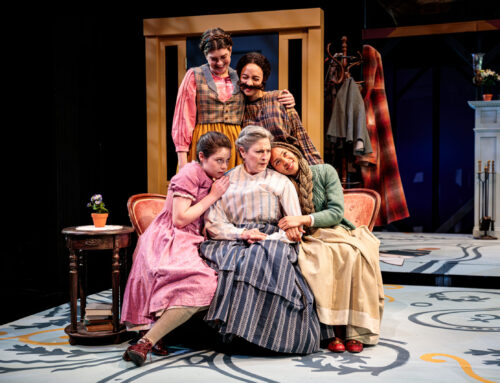
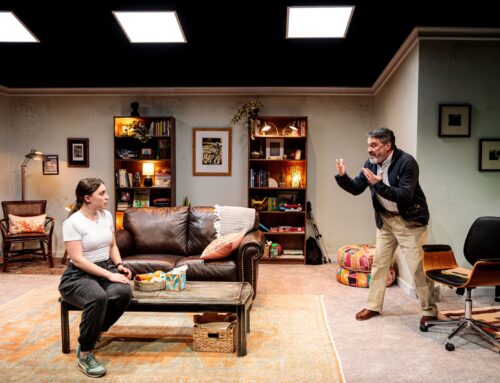
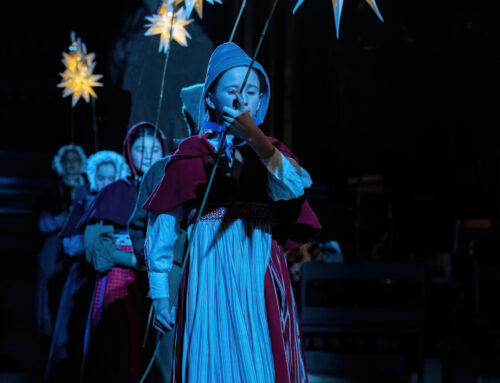
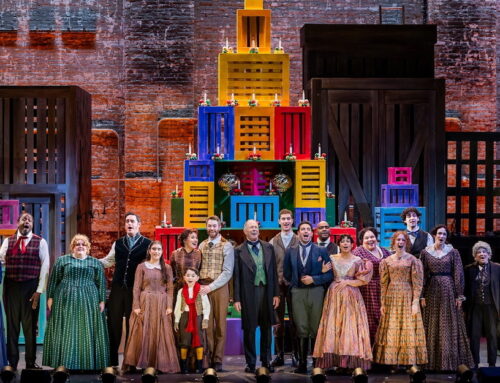
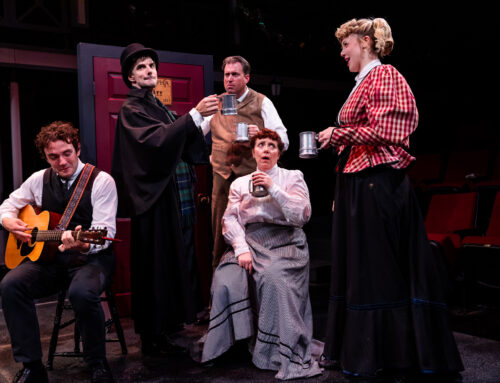
[…] “This is a story for anyone trying to find his or her way, especially the oddballs, the misfits, the powerless–and at one time or another who hasn’t felt like that? Is it any wonder women relate? Especially the less than conventionally pretty ones. The nerds. The losers. The outcast who have lost their voices, and the bossy ones who say what no one wants to hear, who challenge convention, daring to be exactly who they are.” – Joyce Kulhawik of Joyce’s Choices […]